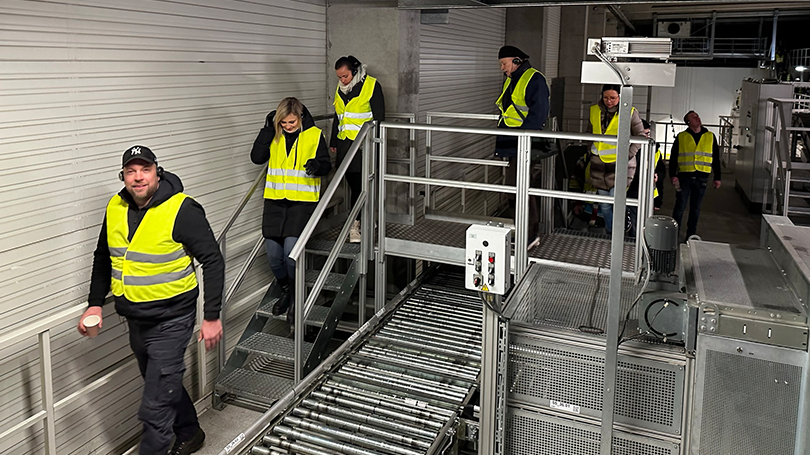
Between Maple Leaves and measuring devices
–Our apprentices in Canada
Our colleague Stella has the opportunity to complete part of her apprenticeship in Canada. This special experience allows her not only to learn new professional skills, but also to discover an interesting culture and environment. In the following interview, Stella will tell us a little more about her daily routine in Canada and what she finds particularly appealing about this extraordinary experience.
Editorial team (R): Hello Stella, it's great that you want to tell us about your everyday life in Canada. Tell us - what apprenticeship are you currently doing with us and what year are you in?
Stella (S): I'm an apprentice industrial electrician and started my second year in September.
R: Would you like to give us some more information about your personal and professional background?
S: I'm French and worked for two years as an EM at the ITM SQF plant in Lyon. I heard about the transnational training and was interested in it; firstly to learn more about the WITRON systems, for example how to commission them, as I had only ever been on a running system before. Secondly, it was a very good opportunity for me to learn German.
R: That's interesting! Are you planning to return to France after your apprenticeship?
S: No, at the moment I have no plans to return to France, as I really like it here in Germany.
R: Which customer in Canada are you currently working for and what are your tasks there as an apprentice? How do you like it so far?
S: Our customer in Canada is Metro. Metro is a Canadian food retailer that operates in the provinces of Quebec and Ontario. I help with commissioning for conveyor technology. The tasks are varied and range from setting up components to problem solving and program settings.
R: Who did you travel with, who is supporting you on this assignment from your colleagues?
S: I traveled with the PLC project manager and two PLC colleagues.
R: How are you getting on linguistically?
S: I learned a lot of new German words, especially technical terms. In any case, the advantage for me in Canada was that people speak English and some French, so I had no problems communicating. It was very pleasant to be able to speak my mother tongue, even though I was 6,000 km away from France.
R: What do you do after work? Do you have the opportunity to see a bit of the surrounding area?
S: We went out to eat a few times after work, we went to Toronto and saw the city. We saw the CN Tower and the city center - it's very different from the big European cities.
R: Why would you recommend other apprentices to go abroad for assembly work in general and to Canada in particular?
S: I would recommend going to foreign construction sites as it is a way to discover other countries and get a good salary at the same time, especially in Canada. You also have the opportunity to learn or improve your English. I find it interesting to see how the work you have done in Parkstein is put into practice. You see the purpose and what comes afterwards, for example from wiring a circuit board to preparing the program in the office to commissioning on site.
R: What have you personally learned so far?
S: I have gained more experience in programming. As I previously worked in an OnSite team as an EM, it's very interesting for me and I like working on the commissioning side now.
R: How long is your current assignment there?
S: Three and a half weeks, so about 23 days.
R: Was there any moment or special experience that you would like to share with us?
S: On our day off, we went to Niagara Falls. I thought it was a beautiful place.
R: What advice would you give to other apprentices who will soon be completing a "foreign assignment"?
S: You should be aware that the turns in Canada take longer than in Europe and that you have to do a lot of work, but once you're there, the time passes quickly.
Apart from that, I would say that you should inform yourself a little about the country you are traveling to. Things you sometimes don't think about like the weather, the currency, the traffic regulations.
Apart from that, you should be open to new experiences, such as trying the local food and visiting the surroundings if possible.
R: Would you also like to say a few words about the entry process for apprentices, as it was said that entering Canada as an apprentice is not a problem, but entering the USA is?
S: I needed a passport to enter Canada, so it's better to take care of it in advance if you don't have one. I had no problems entering Canada as an apprentice. When I arrived in Toronto, I had to go to the immigration office and after answering a few questions, I got my visa.
R: Thank you very much for your time, Stella, and the interesting insights into your working day - we hope you continue to enjoy it!





